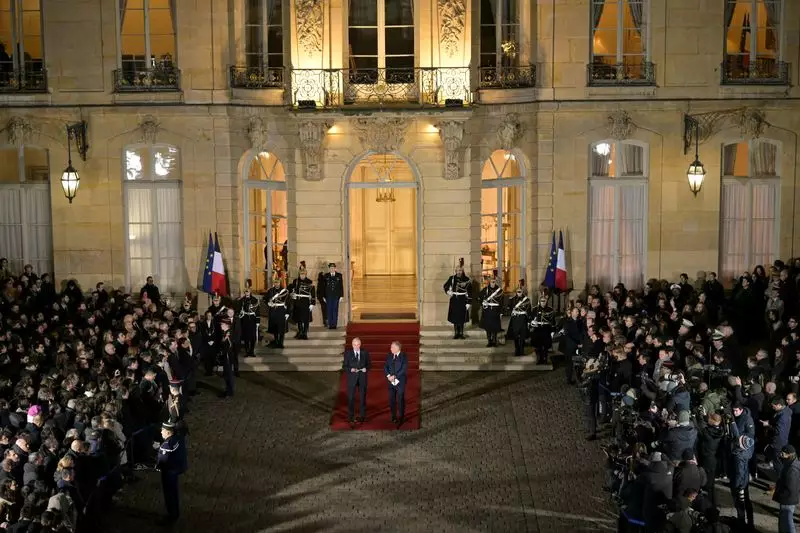The landscape of French politics has shifted dramatically over the past few decades, leading to the appointment of Francois Bayrou as the new Prime Minister under President Emmanuel Macron. Coupled with the political challenges of a fractured parliament and the pressing need to navigate intricate fiscal responsibilities, Bayrou finds himself in a precarious position. This article delves into the multifaceted challenges that Bayrou must confront, exploring the political environment, budgetary constraints, and socio-economic implications of his leadership.
Francois Bayrou, a seasoned centrist politician, comes to power at a time when traditional political boundaries in France are blurring. His past experience as the education minister in the 1990s—marked by controversy over funding private schools—illustrates his capacity for political turmoil. Yet, the landscape he is navigating now is considerably more fractured. With Macron having introduced a new paradigm that dismantled longstanding party affiliations, Bayrou must first gather support among a parliament characterized by deep ideological divisions.
The recent ousting of his predecessor, Michel Barnier, by a motion of no confidence—the first of its kind since 1962—signals the volatility of the current political climate. This uncharted territory leaves Bayrou vulnerable to potential attacks from both far-right and left-wing factions, sowing further instability. His task is not just to pass legislation, but to construct a functioning government under the looming threats of dissent, which showcases the precarious nature of his position.
At the forefront of Bayrou’s immediate responsibilities is the necessity to establish a budget for 2025. This task is further complicated by France’s mounting national debt, which Bayrou has described as a “moral problem.” His predecessor failed to secure fiscal reforms, leaving Bayrou to engage in damage control amidst expectations for austerity and consolidation in public spending. This financial tightrope has the potential to inflame already passionate responses from trade unions and public sector workers who resist pay cuts and increased taxes on the wealthy.
Strategies devised by Barnier included plans for tax increases aimed at the rich and major corporations in a bid to address the projected budget deficit of 6.1% for the upcoming year. However, with Barnier’s government dismantled, those proposals remain unexecuted, leaving Bayrou to grapple with an uphill battle against a backdrop of socio-political unrest and legitimate calls for fiscal responsibility. The need to placate trade unions while maintaining the delicate balance of fiscal consolidation presents a unique conflict—a challenge that demands nuance, strategy, and the art of negotiation.
The political milieu is further complicated by the rise of the far-right National Rally, whose leader, Jordan Bardella, has outlined stark positions that threaten to obstruct any progressive budgetary legislation. The exigent need to address social demands, particularly calls for indexed pensions amid rising inflation, clashes with the financial reality of shrinking government revenues. As seen in recent opinion polls, where Bardella’s party garnered substantial voter support, the far-right’s steadfast presence increases the stakes for Bayrou, demanding an urgent political recalibration.
Outreach efforts from Macron have resulted in dialogue with various political entities, reflecting a desire to unify “Republican forces.” However, this strategy may be undermined by explicit refusals to shift significant reforms dictated by the left or grant any political capital to them. The negotiation process will likely pose another layer of complexity, as legislators from all sides stake their claims, adding to Bayrou’s already daunting challenges as he aims to navigate this fraught political landscape.
With the specter of social discontent looming, the need for long-term solutions cannot be overlooked. The precarious balance between fiscal austerity and social equity is a critical consideration for Bayrou’s administration. As the prime minister grapples with these adversities, it may become increasingly clear that expedient short-term decisions could yield long-term repercussions.
Ultimately, Bayrou’s effectiveness will rely on his ability to build strong coalitions while stabilizing France’s economic footing—not merely managing a budget but instilling trust among key stakeholders. The road ahead is fraught with complexity, requiring adept navigation through ideological divides, fiscal responsibilities, and the ever-present specter of public protest. His success would not only represent a significant moment in his political career but could also have lasting implications for the stability of France.

